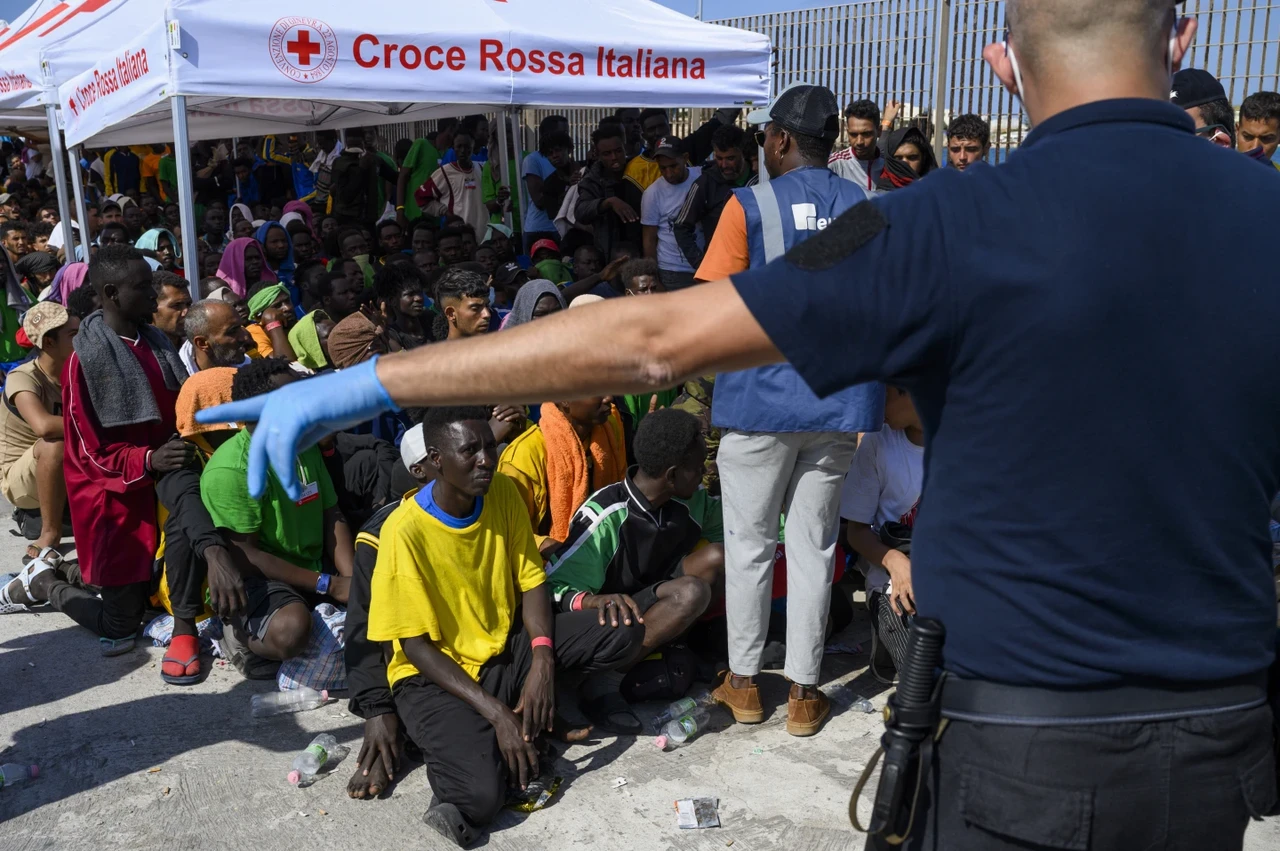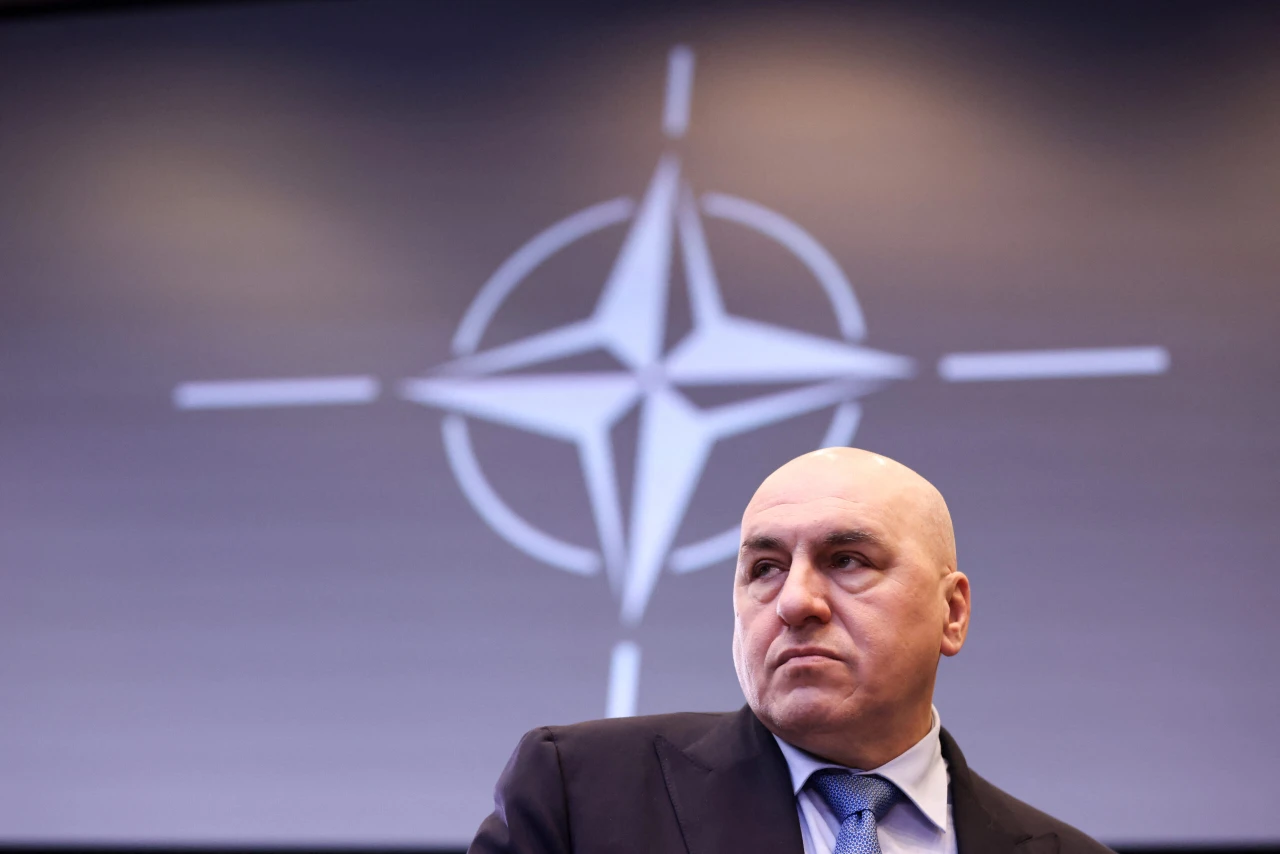Italy to begin transporting migrants to Albania for asylum processing
 Migrants wait to be transferred from Lampedusa Island, Italy, Sept. 15, 2023. (Photo by Valeria Ferraro via AP Photo)
Migrants wait to be transferred from Lampedusa Island, Italy, Sept. 15, 2023. (Photo by Valeria Ferraro via AP Photo)
Migrants seeking refuge in Italy will soon be transported to Albania while their asylum claims are processed, under a controversial deal that begins next month.
This new arrangement, signed by Italian Prime Minister Giorgia Meloni and Albanian Prime Minister Edi Rama, will see Albania host thousands of asylum-seekers on Italy’s behalf.
Migrants to Albania: A controversial deal
From August, migrants rescued at sea attempting to reach Italy will be transported to Albania while their asylum claims are processed. The agreement stipulates that Albania will host up to 3,000 migrants per month, with two centers designated for their shelter. These migrants will be screened initially on board the rescue ships before being sent to Albania for further processing.
Italian Prime Minister Giorgia Meloni announced in June that the two centers would be ready to host the first 1,000 migrants by August 1. However, intensive construction is still underway at one of the centers, raising doubts about its readiness.
The centers, located in Shengjin and near a former military airport in Gjader, will house only adult men. Vulnerable groups, including women, children, the elderly, and those ill or victims of torture, will remain in Italy.
Legal rights and asylum processing
Those sent to Albania will retain their rights under international and European Union law to apply for asylum in Italy. Each claim is expected to take about a month to process, meaning the number of migrants sent to Albania could reach 36,000 annually.
Italy has committed to welcoming those granted asylum, while those rejected will face deportation directly from Albania.
The five-year deal will cost Italy $730 million. Both centers will be fully operated by Italy and will fall under Italian jurisdiction, while Albanian guards will provide external security. The center in Shengjin is already prepared, but the Gjader site is still under construction due to soil issues and a July heatwave.
Political and human rights concerns
The deal has faced criticism from human rights groups and has been described as a dangerous precedent. The International Rescue Committee (IRC) has urged the E.U. and its member states not to adopt this model, calling it “costly, cruel, and counterproductive.” Despite criticism, Meloni and her allies view the agreement as an innovative solution to the E.U.’s long-standing migration issues.



